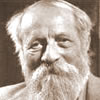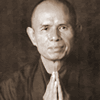Influences | About Me
I have been blessed in my life to have had the opportunity to work and train with some amazing teachers. In addition, I have studied the writings and work of many others who continue to influence who I am as a person as well as my philosophy of transformation, self-empowerment and healing. These are influences, not dogmas. A Buddhist monk inspires me yet I am not a Buddhist. I am constantly in awe of the life of Gandhi, yet I am not a Hindu. I believe there is truth in all facets of life and in all corners of the globe. Here is a sampling of some of my personal “heroes” and influences.
Carl Jung
Your vision will become clear only when you look into your heart. Who looks outside, dreams. Who looks inside, awakens

I have learned a tremendous amount about the unconscious through the work of Carl Jung, one of the founders of modern depth psychology. His scholarship when it comes to archetypes, the collective unconscious and dream interpretation continue to inform my work as a therapist. What is more, Jung’s theory of Individuation has a strong influence in the way I support people in their attempt to break away from old patterns and formulate their unique sense of self. Jung’s integration of symbolic expression, spirituality and psychology helps us balance our understanding of ourselves with our daily experiences in the world.
Gandhi
You must be the change you want to see in the world.

I have based a significant component of my psychotherapy on the life and activities of Mahatma Gandhi. As the pioneer of modern non-violent resistance to tyranny and destruction, the idea of taking responsibility for our own thoughts and actions has dramatically informed the way I counsel people in shifting their attempts to change others in order to get what they want in life. One of the greatest challenges we have in life is becoming stuck in our reactions to people and situations. The work of Gandhi reminds us that we have a choice, always, in the way we confront adversity.
Martin Buber
I have not the right to want to change another if I am not open to be changed by them.

I have written extensively on the work of Martin Buber. His writings about living life in relation to others have probably done more to shape my own development as a person than anyone else. His philosophy of the two primary types of relationship being the I-Thou and I-It enter the therapy room every day and change the way I interact with the world. The notion of spirit existing in the bonds of relationship, “in the between,” are so simple and profound when it comes to working with individuals and couples that I can’t imagine working with anyone without it being present on some level.
Thich Nhat Hanh
People usually consider walking on water or in thin air a miracle. But I think the real miracle is not to walk either on water or in thin air, but to walk on earth. Every day we are engaged in a miracle which we don’t even recognize: a blue sky, white clouds, green leaves, the black, curious eyes of a child — our own two eyes. All is a miracle.
 As a Zen Master, poet, peace and human rights activist, Thich Nhat Hanh has slowly seeped into my psyche through the beauty and simplicity of his words and through the example of his life today. I often ask clients to read some of his short books on living mindfully or overcoming anger as they are so straightforward and easy to assimilate that many other books pale in comparison. His ideas help us to shift our challenging thoughts and activities toward a more mindful, peaceful and mutually respectful direction. His insistence upon the breath as the core of our inner transformation is a foundation for the work I do with clients.
As a Zen Master, poet, peace and human rights activist, Thich Nhat Hanh has slowly seeped into my psyche through the beauty and simplicity of his words and through the example of his life today. I often ask clients to read some of his short books on living mindfully or overcoming anger as they are so straightforward and easy to assimilate that many other books pale in comparison. His ideas help us to shift our challenging thoughts and activities toward a more mindful, peaceful and mutually respectful direction. His insistence upon the breath as the core of our inner transformation is a foundation for the work I do with clients.

